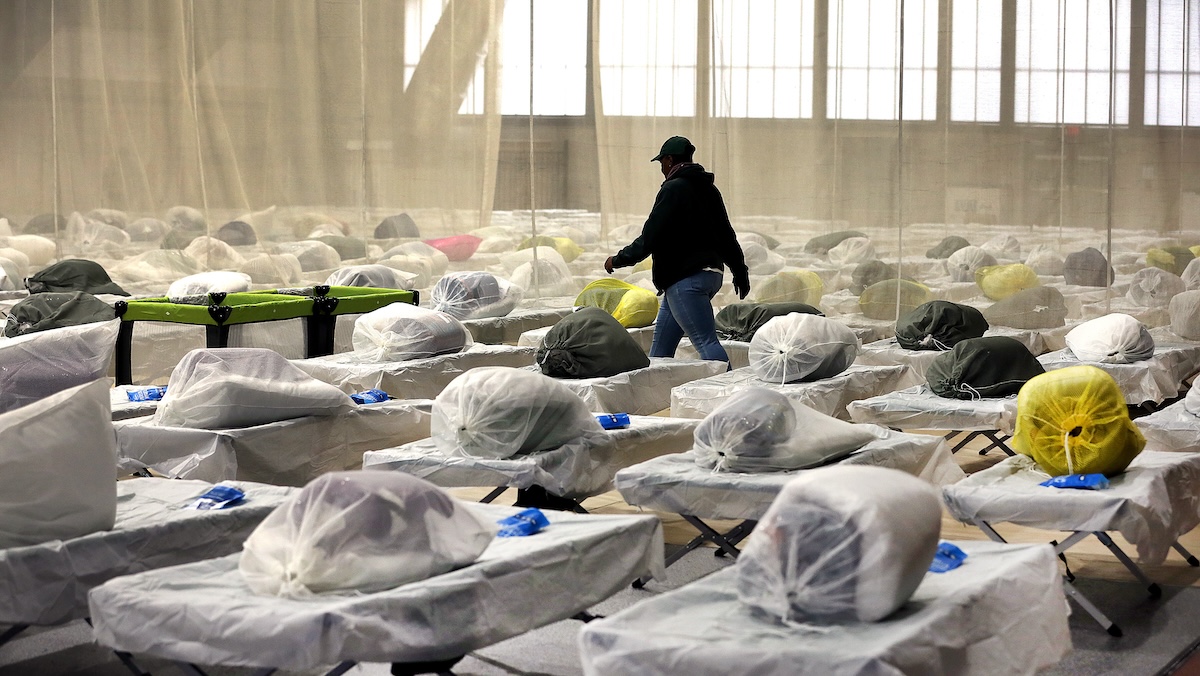Tyrone Brooks was 22 years old and 400 miles away, seeking clues to an unsolved lynching as old as he was, when he got the news that Martin Luther King Jr. was dead. Stunned, Brooks dropped everything and drove to Memphis, crying all the way.
The next day, King's closest confidant, the Rev. Ralph David Abernathy, told Brooks: "Tighten your belts and dry your tears. If you love Martin Luther King as you say you do, help me carry on his work."
The members of King's tight circle barely paused to grieve. They plunged into carrying out his unfinished work, and turned it into a lifelong vow.
Some went into politics. A few continued to serve the organization that King led or started their own. Others returned to the pulpit, preaching a gospel of racial liberation.
And the King legacy continues, evident today in a new generation protesting many of the same issues King confronted : inequality, police brutality and poverty.
"Legally, segregation was outlawed, but we still face a danger in public space," said Bree Newsome, who climbed a pole to snatch down the Confederate flag at the South Carolina statehouse in 2015. "In that way, I absolutely feel that what we're doing is continuing in the legacy of Martin Luther King."
Even so, the problems persist. A poll by the Associated Press-NORC Center for Public Affairs Research found only 1 in 10 African Americans think the United States has achieved all or most of the goals of the civil rights movement. Among whites, only 35 percent believe those goals have been at least mostly achieved.
U.S. & World
"A lot of people across the country see injustice or inequality as unfortunate, almost like a car accident, instead of unjust and something they have to do something about," said Rashad Robinson, 39, who uses King's example as a guide in his work as executive director of the online civil rights group Color of Change. "People talk a lot about empathy, but King was really building power. Power is the ability to change the rules, and Dr. King was all about changing the rules."
Jesse Jackson parlayed his service at King's side into a blend of grassroots activism and elective politics.
Through aggressive voter registration, Jackson assembled a base of support patterned after the "beloved community" King envisioned for America and ran for president twice in the 1980s. His candidacy is widely considered to have laid the foundation for the election of the first black president, Barack Obama, in 2008.
"We were determined to keep moving, in his name," Jackson said.
After the assassination, Brooks helped lead the Mule Train — a caravan of mule-drawn wagons that symbolized poverty — out of the Deep South to Washington for the Poor People's Campaign, King's last big protest, in the summer of 1968. He followed up his career in King's Southern Christian Leadership Conference with nearly four decades as a Georgia legislator, pushing legislation that would eventually remove the Confederate symbol from the state flag.
Now 72, Brooks does advocacy work around the same 1946 quadruple lynching he was pursuing 50 years ago. No one was ever arrested or charged in the case.
"Some of us are so committed to making sure the dream never dies, we committed to this struggle for life," Brooks said.
Though only 13 when King was killed, the Rev. Al Sharpton was already an SCLC activist. He said his dramatic approach, aimed at seizing media attention and the national spotlight, came from King's playbook.
"King knew how to deal with movement theater and we had to recreate that," said Sharpton, 63. "When people say, 'All they want is publicity,' that's exactly what we want. That's what King wanted. Because if you can't make something a public issue, no one will seek to solve it."
That strategy has largely been the focus of the Rev. William Barber, who began the Moral Mondays movement in North Carolina in 2013 to push back against rollbacks on education, health care and voting.
"It's time to change the moral narrative," said Barber, 54, who will lead a revival of the Poor People's Campaign this spring to attract new attention to poverty.
Brittany Packnett, 33, who became an activist after Michael Brown was killed by a white police officer in Ferguson, Missouri, in 2014, said her activism is fueled by King's willingness to "sacrifice himself for a freedom he may never see."
"If Dr. King hadn't done this for us, we wouldn't be here," Packnett said. "As persistent as injustice is, so will we be."



